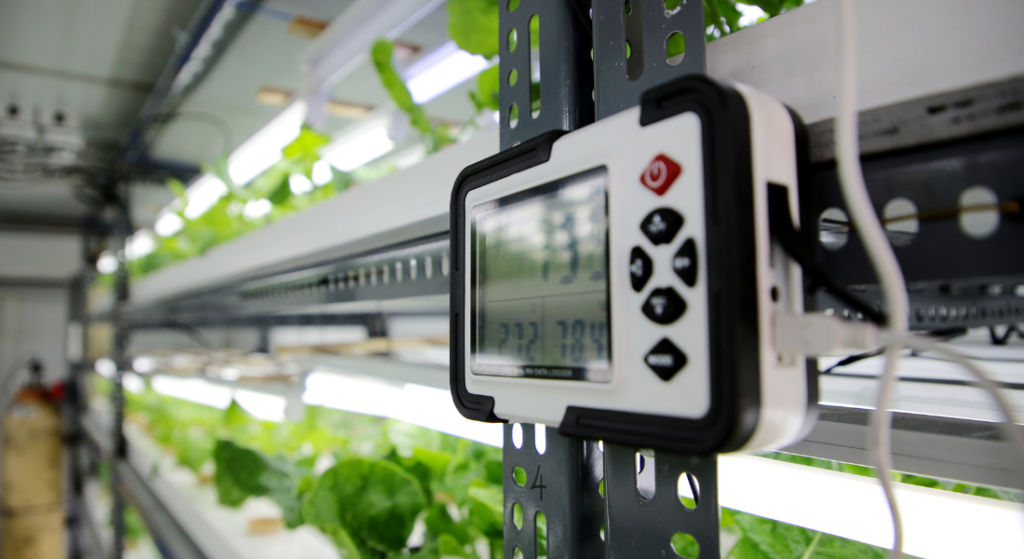In a world where environmental challenges are intensifying, and the global population continues to burgeon, sustainable agriculture is not just a trendy buzzword; it’s an absolute necessity. At the heart of this imperative lies the pivotal role of energy efficiency within the realm of farming and food production. It offers a profound pathway toward securing a more sustainable and resilient food supply for both current and future generations. In the following blog post, we will embark on an exploratory journey to delve into the multifaceted facets of energy efficiency and its transformative potential within the agricultural sector. As we venture deeper, we will unearth the manifold ways in which embracing energy efficiency can lead to positive outcomes, not only for farmers seeking economic sustainability but also for the broader environment, making it a win-win proposition for all stakeholders.
The Energy Challenge in Agriculture
Agriculture is inherently energy-intensive. From machinery and irrigation to transportation and processing, the demands on energy resources are substantial. As the global population expands, so does the need for food production. To meet this demand while safeguarding our environment, energy efficiency is paramount.
Energy Efficiency Measures in Agriculture

Energy-Efficient Equipment – Elevate your operational efficiency by investing in energy-efficient equipment and lighting systems. Upgrading to machinery and lighting systems designed with energy conservation in mind is a smart and eco-conscious choice. These advanced systems not only optimize energy use but also lead to significant cost savings in the long run. Energy-efficient equipment ensures that you get the job done while minimizing waste, benefiting both your bottom line and the environment. So, consider this as a strategic move that not only enhances your operational efficiency but also reduces your ecological footprint, all while contributing to a sustainable and responsible future.
Precision Agriculture – Utilize technology like GPS-guided tractors and drones to optimize planting, irrigation, and fertilization, reducing waste and energy consumption.
Renewable Energy – Embrace renewable energy by incorporating solar panels and wind turbines into your agricultural operations. These eco-friendly solutions generate clean, on-farm energy, reducing your dependency on fossil fuels and lessening your environmental footprint. By harnessing the power of renewable sources, you pave the way for a more sustainable and self-reliant farming future.
Proper Maintenance – Regular maintenance and upkeep of equipment can ensure it operates at peak efficiency.
Waste-to-Energy – Dive into cutting-edge waste-to-energy technologies that transform agricultural waste into usable energy, effectively reducing both waste and energy costs. Embracing these innovative solutions allows you to not only manage agricultural waste more responsibly but also harness it as a valuable resource, furthering your commitment to sustainability and cost-efficiency.
Energy Efficiency – Benefits in Agriculture
Lower Operational Costs – Implementing energy-efficient practices can significantly reduce the operational costs of farming. Efficient equipment and systems can lead to lower fuel and electricity bills, directly impacting a farmer’s bottom line.
Environmental Stewardship – Reduced energy consumption means a smaller carbon footprint. Sustainable agriculture promotes environmental responsibility, helping to mitigate the industry’s impact on climate change and resource depletion.
Enhanced Productivity – Energy-efficient technology, such as precision agriculture tools and automated systems, can optimize crop management and livestock care, leading to higher yields and improved farm productivity.
Resource Conservation – Energy-efficient practices often align with resource conservation. Using less energy can also mean using less water, fuel, and other valuable resources.
Improved Reliability – Energy-efficient equipment is often more reliable and requires less maintenance. This reduces downtime and ensures that farming operations can run smoothly.
Cultivating Sustainability through Energy Efficiency
In the realm of agriculture, the commitment to sustainability is nothing short of a promise: a promise to meet the food needs of the present without compromising the ability of future generations to do the same. At the heart of this promise lies a profound transformation brought about by energy efficiency. By reducing energy consumption, farmers not only lower operational costs and enhance productivity but also take significant steps toward environmental stewardship.
The synergy between energy efficiency and sustainable agriculture is nothing short of a revolution in the making, holding the promise of a more resilient and responsible food supply chain. This emerging paradigm is a win-win for farmers and the planet they cultivate.
As we venture forward, embracing energy efficiency in farming and food production is not just a choice; it’s an absolute necessity. It’s a choice to ensure a sustainable and secure future for all, where food is abundant, the environment is protected, and the legacy we leave for generations to come is one of progress, not depletion.
The necessity for sustainable agriculture in the face of mounting environmental challenges and a growing global population cannot be overstated. Energy efficiency emerges as a beacon of hope within this scenario, offering a viable path to ensure the future of our food supply remains secure and environmentally responsible.
As we’ve explored the myriad benefits of embracing energy efficiency in the agricultural sector, it becomes evident that this shift is not just a choice; it’s an imperative. It promises to enhance the resilience and sustainability of our food supply chain while reducing operational costs for farmers and actively contributing to environmental stewardship. This harmonious synergy between energy efficiency and sustainable agriculture embodies the hope for a brighter and more secure future, where the nourishment of the world is not compromised, and the planet is safeguarded for generations to come.



